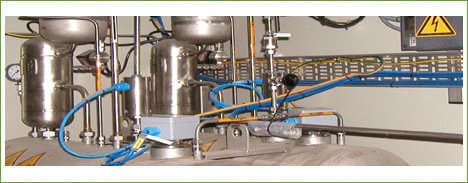
Air Fuel Synthesis’ New Process Creates Gas Made From Air
Jonathon Brown — November 8, 2012 — Eco
References: treehugger & ecogeek.org
As the world’s supply of oil continues to dwindle, gas prices rise and the race to find new energy solutions continues with Air Fuel Synthesis’s new method of creating gas made from air and water. While still in the beginning stages, the process involves capturing carbon from the atmosphere and using electrolysis to break water down into hydrogen and oxygen. Next, they put the hydrogen and carbon dioxide together to create synthetic gas.
Sometimes renewable energy methods like this are hampered by the fact that it takes more gas-powered energy to create the new kind of fuel than is actually saved by that fuel. To combat this, Air Fuel Synthesis uses renewable energy sources to fuel he extraction processes.
At the moment, the cost of gas made from air is too high to allow widespread use. Furthermore, after two months, only five liters of gas have been produced. Until further developments are made, this is a process with potential, but without plausible application. Nonetheless, it adds to the growing number of clean energy development efforts around the world.
Sometimes renewable energy methods like this are hampered by the fact that it takes more gas-powered energy to create the new kind of fuel than is actually saved by that fuel. To combat this, Air Fuel Synthesis uses renewable energy sources to fuel he extraction processes.
At the moment, the cost of gas made from air is too high to allow widespread use. Furthermore, after two months, only five liters of gas have been produced. Until further developments are made, this is a process with potential, but without plausible application. Nonetheless, it adds to the growing number of clean energy development efforts around the world.
Trend Themes
1. Carbon Capture - Exploring innovative ways to capture carbon from the atmosphere is an opportunity for companies looking to create sustainable fuel sources.
2. Renewable Energy-powered Extraction - Using renewable energy sources to power the extraction processes can reduce the energy required to produce synthetic gas, making it a more viable option for widespread use.
3. Clean Energy Development - Investing in research and development of clean energy solutions can lead to innovative breakthroughs that could ultimately replace traditional fossil fuels.
Industry Implications
1. Energy - The energy industry has an opportunity to invest in and develop clean energy solutions that can secure a sustainable future.
2. Transportation - The transportation industry can explore the potential of using synthetic gas made from air to fuel vehicles and reduce their carbon footprint.
3. Chemical - The chemical industry can explore the potential of synthetic gas made from air as an alternative feedstock to produce chemicals and reduce their dependence on conventional fossil fuels.
0.7
Score
Popularity
Activity
Freshness























